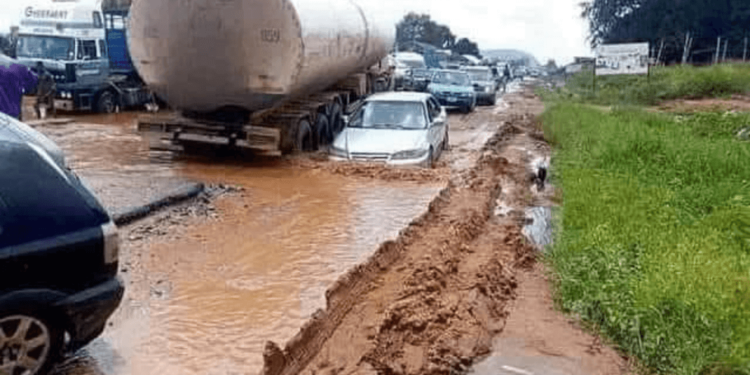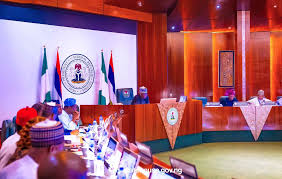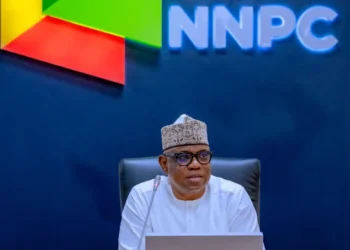In Nigeria, the state of the country’s road infrastructure remains a significant obstacle to economic development. The nation’s roads, which are crucial for the movement of goods and people, are often in poor condition and suffer from inadequate maintenance. This issue not only impede trade and logistics but also stifles the growth potential of various sectors of the economy. As Nigeria seeks to boost its economic standing both regionally and globally, improving its federal and state road networks is a necessary step toward unlocking its full potential.
Roads play an indispensable role in the transportation of goods and services. In Nigeria, like in many other countries, a large portion of domestic trade relies on road networks. With limited railway and air transport infrastructure, and with sea transport often confined to coastal regions, roads are the primary means by which goods move across the country. Poor road conditions increase the cost of transportation, leading to delays in delivery times, increased wear and tear on vehicles, and higher operational costs for businesses.
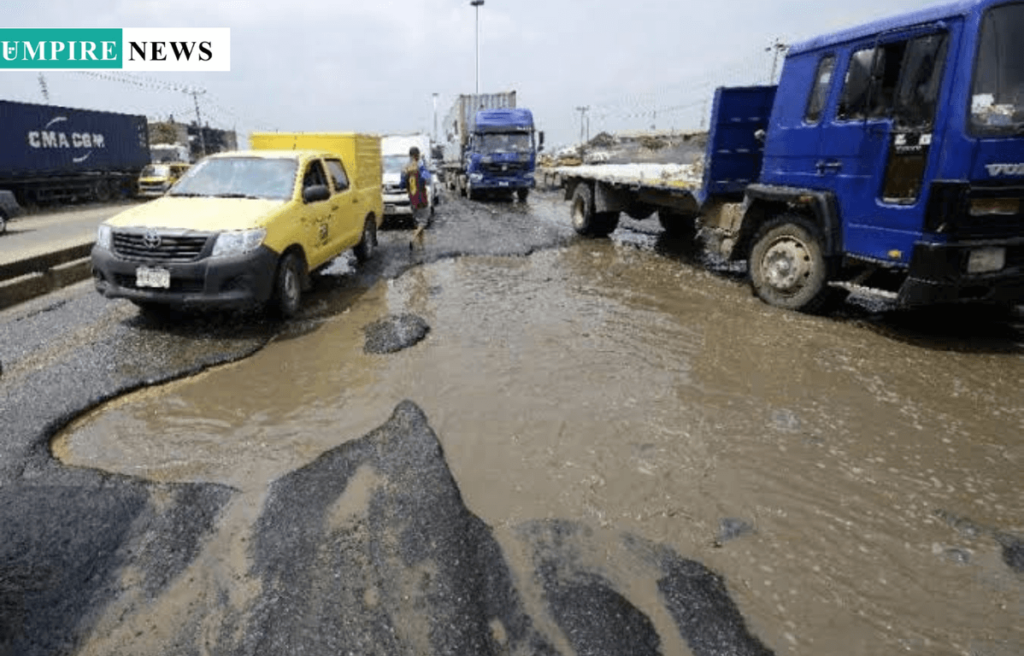
In 2022, the World Bank reported that logistics costs in Nigeria were significantly higher than in other African countries, primarily due to road infrastructure deficiencies. According to the report, Nigeria’s logistics costs amount to nearly 50% of the value of goods traded, which is substantially higher than the global average of 8-10%. These high costs are often passed on to consumers, making goods and services more expensive. In turn, this affects the competitiveness of Nigerian products both locally and in international markets.
Additionally, poor road infrastructure is a major bottleneck for the agricultural sector, which is a key driver of Nigeria’s economy. Agricultural products, which are time-sensitive, often perish during transportation because of rough and unmaintained roads. This not only affects food security but also leads to reduced income for farmers, further exacerbating poverty in rural areas. Improving road networks would ensure that agricultural produce reaches markets more efficiently, benefiting both farmers and consumers.
The lack of efficient roads also affects industrial and commercial activities in Nigeria. Manufacturing plants, distribution centers, and warehouses rely on road networks for the timely movement of raw materials and finished products. A delay in transportation can lead to production downtime and cause a ripple effect that impacts the entire supply chain. When roads are impassable or damaged, logistics companies face delays, which leads to a loss of business, particularly in key sectors such as oil and gas, construction, and retail.
For example, the oil and gas sector, which is one of Nigeria’s main revenue sources, is severely impacted by poor road conditions. Pipelines, refineries, and distribution centers often require the movement of heavy machinery and equipment. The inability to transport these items quickly due to bad roads increases the costs of doing business and reduces efficiency. It also impacts foreign direct investment, as companies may choose other countries with better infrastructure for their operations.
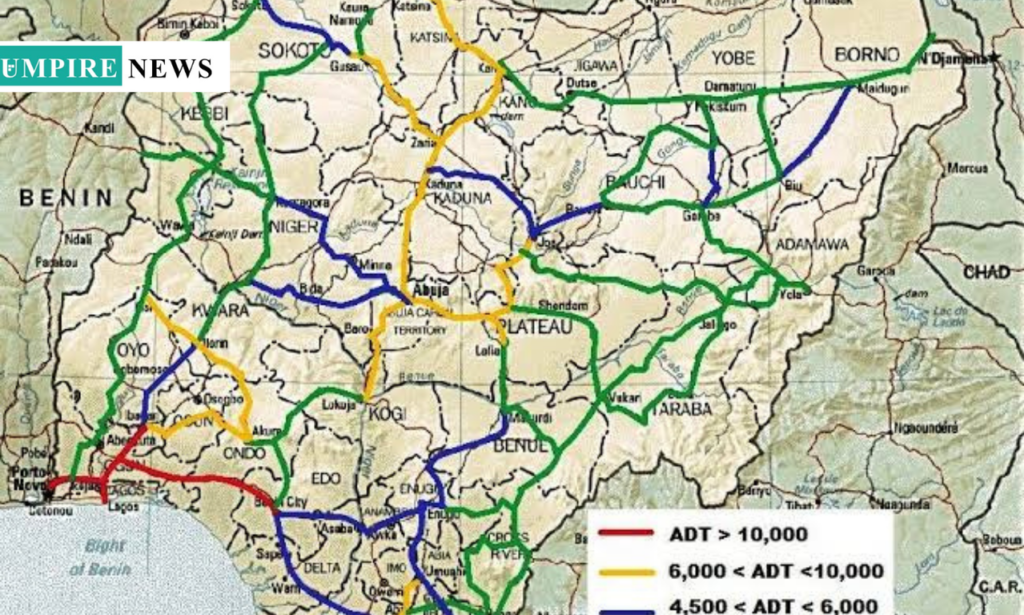
Moreover, the tourism industry, which has enormous potential for economic growth in Nigeria, suffers due to poor roads. Tourists tend to avoid locations that are hard to reach or require long hours of travel on dilapidated roads. Investing in roads would not only make tourist destinations more accessible but also create jobs, stimulate local economies, and increase the country’s overall revenue from tourism.
A modern and well-maintained road network is crucial for sustainable economic growth. According to the African Development Bank, improving road infrastructure can significantly boost a country’s GDP, with a return of up to $2 for every $1 invested in roads. For Nigeria, such an investment would create a multiplier effect that could result in the development of industries, the creation of new jobs, and an improvement in overall productivity. The nation’s transport sector alone employs millions of Nigerians, from drivers to logistics managers, all of whom would benefit from improved infrastructure.
Furthermore, the construction and maintenance of roads create thousands of jobs, especially in a country with a large youth population. The direct and indirect employment opportunities that stem from road projects can help reduce the high rate of unemployment and improve the quality of life for Nigerians. Beyond job creation, better roads facilitate trade between regions, promote foreign investment, and reduce transaction costs, all of which contribute to a more vibrant and dynamic economy.
Despite the clear need for improved road networks, Nigeria’s road infrastructure remains underdeveloped. There are a number of challenges contributing to this problem. First, there is a chronic lack of funding for road projects. With a population of over 200 million people, the government faces immense pressure to allocate resources to a range of sectors such as education, healthcare, and security. As a result, road maintenance and expansion often take a backseat.
Another challenge is corruption, which has plagued many infrastructure projects in Nigeria. Poor oversight and the mismanagement of funds often lead to the abandonment of road projects or the construction of substandard roads that deteriorate quickly. Additionally, the heavy traffic on many major roads, combined with poorly designed and overburdened routes, causes significant wear and tear on the existing infrastructure.

The regulatory framework around road development is also a hindrance. Often, there is insufficient coordination between federal and state governments, leading to fragmented and sometimes conflicting policies. The lack of consistency in road construction standards further complicates efforts to improve the road network. Moreover, public-private partnerships, which could help address the funding gaps, have not been fully optimized, limiting the potential for large-scale road projects.
To overcome these challenges, Nigeria must prioritize road infrastructure in its national development agenda. The federal and state governments must work together to address the gaps in funding, planning, and execution. First, there is a need to increase public investment in road infrastructure through a combination of government spending and public-private partnerships. Foreign investments, particularly in the form of loans and grants, should also be explored to fund large-scale road projects.
Nigeria needs to address the problem of corruption in the construction and maintenance of roads. Transparent bidding processes, proper project monitoring, and stronger accountability measures should be instituted to ensure that funds allocated for road projects are used efficiently.
The establishment of a comprehensive national road policy, which coordinates efforts across all levels of government, would help to standardize construction and maintenance practices, ensuring that roads are built to last and are accessible to all Nigerians. Additionally, the introduction of modern technologies in road maintenance, such as road sensors and automated traffic management systems, could help reduce wear on roads and improve traffic flow.
Nigeria must recognize that improving roads is not just about construction; it’s about long-term sustainability. Regular maintenance is crucial to ensure that roads remain in good condition for years to come. This requires a shift in focus from building new roads to maintaining and upgrading existing ones, especially in rural areas, where infrastructure often lags behind urban areas.
Improving Nigeria’s federal and state road networks is essential for driving trade, logistics, and overall economic growth. By addressing the challenges of funding, corruption, and regulatory coordination, Nigeria can create a road system that facilitates the movement of goods and services, reduces costs for businesses, and supports job creation and industrial growth. With a modern and efficient road network, Nigeria will be better positioned to achieve its economic potential and provide a better quality of life for its citizens.


